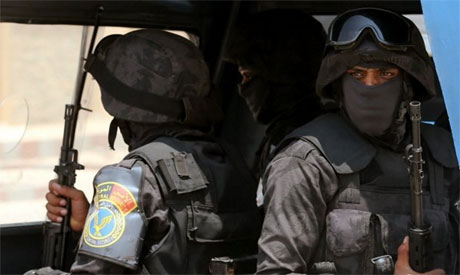Egyptian President Abdel Fattah al-Sisi issued a decision June 24 to extend the state of emergency across the country for three additional months, as of 1 p.m. on July 14. Parliament approved the decision later the same day.
Sisi said in his decision, published in the official gazette, that extending the state of emergency stems from the critical security situation in the country. According to the decision, the armed forces and the police will take the necessary measures to face the risk of terrorism, protect citizens’ lives and imprison whoever violates the president’s decisions in compliance with the provisions of the 1958 State of Emergency Law No. 162.
This is the fifth time Sisi has extended the state of emergency since he announced it for the first time in April 2017 for three months. Sisi declared a state of emergency in the wake of two terrorist bombings targeting churches in Tanta and Alexandria, in northern Egypt, on April 9, 2017. The attacks killed 44 people and wounded 128 others. The state of emergency was extended for the first time July 4, 2017, then for the second time Oct. 12, 2017, then again for the third time Jan. 13 and for the fourth time April 14.
The 1958 State of Emergency Law No. 162 gives the president the power to restrict people’s freedom to convene and allows him to monitor emails, calls and newspapers, evacuate or isolate some regions, withdraw weapons or ammunition permits, and determine the opening and closing times of shops.
Experts who talked to Al-Monitor had conflicting opinions about the decision to extend the state of emergency. Some believe the country is still under a risk of terrorism, which necessitates an extension of the state of emergency, while others thought this was just a pretext to restrict citizens’ freedom.
Hassan Nafaa, a political science professor at Cairo University, told Al-Monitor that the decision to extend the state of emergency is not targeted at terrorists, but rather regular citizens, in an attempt to forbid them from voicing their opinions or calling for protests. He said that the emergency law does not deter terrorists.
Meanwhile, Khaled Okasha, a member of the government’s Supreme Council for Combating Terrorism, said, “The country is still facing threats in Sinai and on the western borders. Therefore, the state of emergency must go on because it allows for more [security] achievements to be reached quickly.”
Okasha told Al-Monitor that the state of emergency helped the armed forces improve the security situation in Egypt and instill more stability. He noted that the state of emergency did not affect citizens because the decision targets terrorism and terrorists.
On June 21, the armed forces released a statement about the comprehensive operation the Egyptian army launched Feb. 9 in north and central Sinai and the Nile Delta to eliminate terrorists. In the statement, the army announced killing 32 extremists, dismantling and blasting 15 bombs, and raiding and damaging 272 hideouts.
Yahya Kadwani, the deputy chairman of the Defense and National Security Committee of the Egyptian parliament, said that extending the state of emergency is protected by the 2014 constitution. Accordingly, the president has the right to extend the state of emergency for three months as long as his decision is justified.
Kadwani told Al-Monitor, “The extension decision does not conflict with the constitution.”
He noted, “We are in a state of war, and organized forces are targeting the security of the country. Therefore, security authorities have the right to wider powers.”
Article 154 of the 2014 constitution states, “The President of the Republic declares, after consultation with the Cabinet, a state of emergency in the manner regulated by law. Such proclamation must be submitted to parliament within the following seven days for consideration. … In all cases, the declaration of a state of emergency must be approved by a majority of members of parliament. The declaration is for a specified period not exceeding three months, which can only be extended by another similar period upon the approval of two-thirds of parliament members.”
He added that the state of emergency targets terrorists committing illegal acts that affect Egypt’s interests and security.
Alaa Abed, the head of parliament’s Human Rights Committee, said June 24 that the Sinai operation will be successful against terrorism.
He added, “The state of emergency does not affect people’s freedom and is necessary.”

